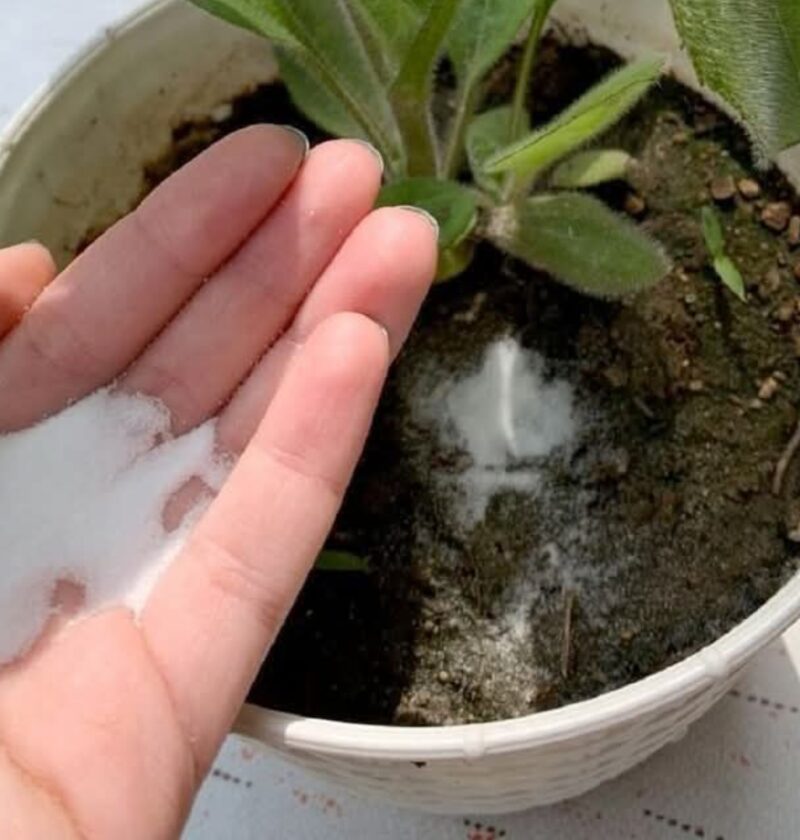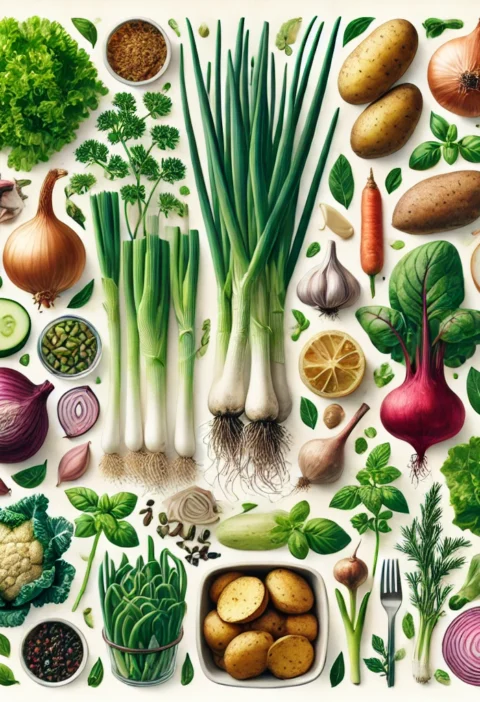Baking soda, or sodium bicarbonate, is a household staple that goes far beyond baking. It’s a secret weapon for gardeners, offering natural solutions to common gardening problems. Whether you’re battling pests, adjusting soil pH, or looking for an eco-friendly alternative to harsh chemicals, baking soda has you covered.
In this comprehensive guide, we’ll explore the fascinating history of baking soda, its role in gardening, expert tips, variations, and even common mistakes to avoid. Let’s dive into the 10 clever ways baking soda can transform your garden.
—
A Brief History of Baking Soda
Baking soda has been used for centuries in various applications, from medicine to cleaning. Ancient Egyptians used a form of baking soda called natron for cleaning and preservation. In the 18th century, European chemists developed modern sodium bicarbonate, revolutionizing household and industrial applications.
In gardening, baking soda became popular as an alternative to synthetic fertilizers and pesticides. Its non-toxic nature makes it an excellent choice for organic gardening, helping plants thrive without harming the environment.
—
10 Genius Ways to Use Baking Soda in the Garden
1. Natural Fungicide
Fungal diseases like powdery mildew and black spot can devastate plants. A baking soda spray helps prevent and control these issues naturally.
How to Use It:
Mix 1 tablespoon of baking soda, 1 teaspoon of liquid dish soap, and 1 gallon of water.
Spray the mixture on plants, focusing on leaves and stems.
Apply early in the morning or late in the evening to prevent leaf burn.
Why It Works:
Baking soda changes the pH level on leaf surfaces, making it difficult for fungi to thrive.
Expert Tip:
Add neem oil to the mixture for enhanced antifungal properties.
—
2. Weed Killer
Weeds compete with plants for nutrients and water. Baking soda is a non-toxic alternative to chemical herbicides.
How to Use It:
Sprinkle baking soda directly on weeds growing in cracks or unwanted areas.
Avoid applying it too close to desirable plants, as it may affect them.
Why It Works:
Baking soda dehydrates weeds and disrupts their cell function, eventually killing them.
Common Mistake to Avoid:
Don’t overuse it in garden beds, as excessive amounts can affect soil pH.
—
3. Pest Deterrent
Baking soda is an excellent natural insect repellent, especially for cabbage worms, aphids, and ants.
How to Use It:
Mix equal parts baking soda and flour and dust it on affected plants.
For ants, create a barrier of baking soda around the plant base.
Why It Works:
It disrupts the digestive systems of insects and makes plants less appealing to pests.
Alternative Recipe:
Combine baking soda, sugar, and a few drops of vinegar to attract and eliminate ants naturally.
—
4. Soil Amendment
Gardeners often struggle with acidic soil, which can affect plant growth. Baking soda helps neutralize soil acidity, improving plant health.
How to Use It:
Test soil pH using a simple home kit.
If soil is too acidic, lightly sprinkle baking soda over the surface and water thoroughly.
Why It Works:
Baking soda raises the pH, making soil more alkaline, which benefits plants like spinach, kale, and beets.
Warning:
Excessive use can disrupt nutrient balance—always test soil before applying.
—
5. Tomato Sweetener
Tomato plants thrive in slightly acidic to neutral soil. Adjusting the pH with baking soda enhances the sweetness of tomatoes.
How to Use It:
Sprinkle 1 tablespoon of baking soda around the base of each tomato plant.
Avoid direct contact with the stems and leaves.
Why It Works:
Lowering soil acidity reduces tartness in tomatoes, leading to a sweeter harvest.
Fun Fact:
Professional tomato growers use soil pH control as a secret technique to improve flavor!
—
6. Compost Enhancer
Compost piles often become too acidic, slowing down decomposition. Baking soda helps maintain balance, promoting faster breakdown of organic material.
How to Use It:
Sprinkle a small amount of baking soda into your compost bin.
Mix well to distribute evenly.
Why It Works:
It reduces acidic buildup and prevents foul odors caused by anaerobic bacteria.
Common Mistake:
Overuse can make compost too alkaline, slowing down decomposition.
—
7. Odor Absorber
Gardening often comes with unpleasant smells, especially from compost bins, garbage areas, or pet waste. Baking soda neutralizes odors effectively.
How to Use It:
Sprinkle baking soda in compost bins, trash cans, or near smelly areas.
Let it sit for a few hours before rinsing.
Why It Works:
Baking soda absorbs and neutralizes odor-causing molecules.
—
8. Tool Cleaner
Gardening tools collect dirt, rust, and bacteria over time. Baking soda acts as a gentle, non-abrasive cleaner.
How to Use It:
Make a paste using baking soda and water.
Scrub tools using a brush or sponge.
Rinse and dry thoroughly.
Why It Works:
Baking soda breaks down rust and grime without corroding metal.
Bonus Tip:
For deep rust removal, soak tools in vinegar and baking soda overnight.
—
9. Seed Germination Booster
Seeds with hard outer shells benefit from pre-soaking in a baking soda solution.
How to Use It:
Mix 1 teaspoon of baking soda with 1 cup of warm water.
Soak seeds for 12 hours before planting.
Why It Works:
Baking soda softens seed coats, allowing water and nutrients to penetrate more easily.
Best for:
Beans, peas, okra, and other hard-coated seeds.
—
10. Ant Repellent
Ants can disrupt garden beds by creating nests and farming aphids. Baking soda repels them naturally.
How to Use It:
Sprinkle baking soda along ant trails or near plant roots.
For severe infestations, mix baking soda and sugar, which attracts and eliminates ants.
Why It Works:
Baking soda interferes with ants’ digestion and disrupts their colony communication.
—
Conclusion: The Ultimate Gardening Hack
Baking soda is a versatile, eco-friendly, and budget-friendly gardening solution. Whether you need a natural pesticide, a soil amendment, or a cleaning agent, this simple ingredient does it all.
Final Tips for Using Baking Soda in Gardening:
✅ Always test soil before altering pH.
✅ Use in moderation to prevent nutrient imbalances.
✅ Combine with natural ingredients like vinegar, soap, or neem oil for added benefits.
Baking soda proves that the best gardening solutions are often found in the kitchen! Have you tried using baking soda in your garden? Let us know your favorite method in the comments!
—






